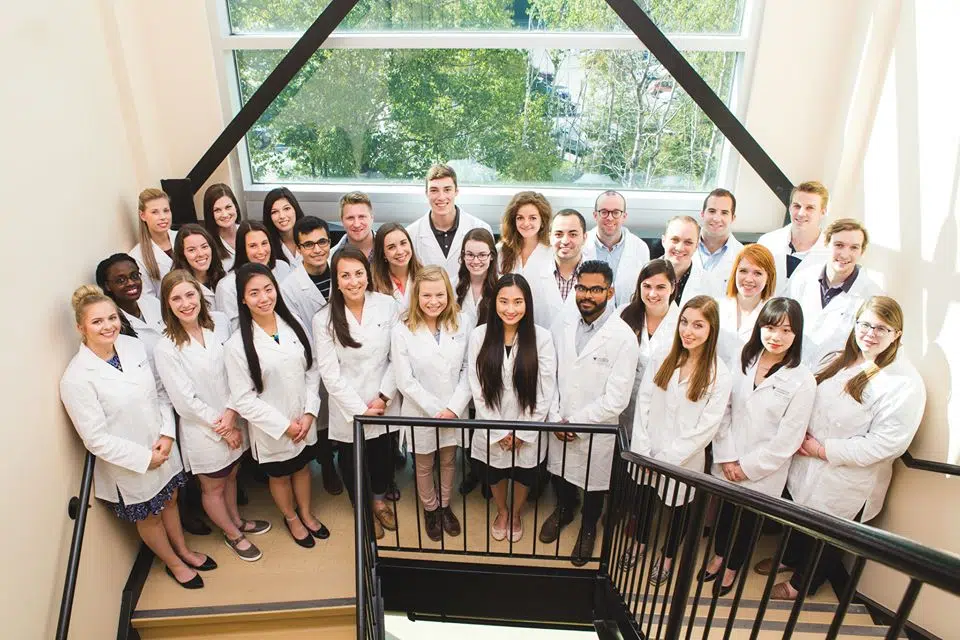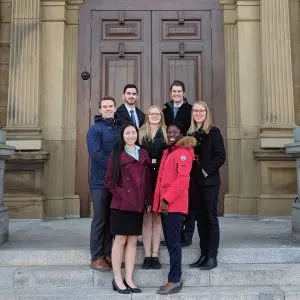
Dalhousie Medicine New Brunswick's Class of 2021 (Credit: Nicholas Quinn)
Medical students are trying to figure out how their studies will be affected by the shutdown of Dalhousie Medicine New Brunswick and UNB Saint John during the COVID-19 pandemic.
“Currently the Deans for all the medical schools across Canada are collaborating and in regular communication to try and establish a plan moving forward for how it will affect us,” said third-year Dalhousie Medicine NB student Nicholas Quinn.
In some ways, the curriculum is business as usual, especially for first-and second-year medical students. Much of Dalhousie’s classes relied on virtual learning due to Saint John’s remote campus, with lecturers conferencing in from Halifax.
The lectures are recorded, and students can continue to study through the recordings from previous years based on whatever rotation they are currently in.
Tutorials, group work and exams will need to be made up at a separate time.
“At this point, we don’t really know when our next exam is going to be, so we don’t really want to take too much time off or relax too much,” he said.

Nicholas Quinn (far left) and fellow Dalhousie Medicine NB students in Ottawa advocating for improved access to mental health Credit: Nicholas Quinn)
The quarantine complicates matters for third-year medical students like Quinn, who would normally be completing their core clinical electives and undergoing their clerkship.
Clerkships are when medical students start working in a clinical setting outside of the classroom and begin to establish what field of medicine they want to pursue. Due to the pandemic, at this point in time all medical schools have been pulled from their clerkship.
“It’s particularly concerning because the way we move into fourth year where we choose fourth-year electives relies on us completing our core clinical electives in third year, said Quinn.
“We’ll have to complete them at some point; we just don’t really know when that’s going happen or how that’s going to happen.”
However, the medical schools and application service that matches medical students’ residency positions, where they complete their specialty training, are working together to make sure everything will be completed accordingly.
“I am encouraged that they are working collaboratively at a national level, he said. “It levels the playing ground and we don’t need to be concerned about being left behind or other schools getting ahead.”
Quinn, who has a Masters of Public Health, has been encouraged by the provincial and federal response to COVID-19 and thinks people are taking the virus seriously and for the most part, adhering to physical distancing practices.
“From a provincial perspective, we’re in a bit of a fortunate position in that we’re a smaller province with a low population,” he said. “We don’t have a lot of international travel to our province relative to other provinces, so we had a bit of a preview of what was going to be coming for us.”
Quinn feels New Brunswick was able to react in a timely manner by encouraging people to stay at home, shutting down businesses and limiting travel.
“I think we are in a good position that we can flatten the curve, potentially depending on if people continue to adhere to these social distancing measures,” said Quinn.





